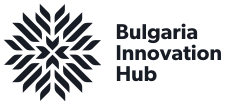The secret to developing a great product is learning how to dig really deep and go really broad
The story of this month’s BIH mentor is one that starts at the Sofia University St. Kliment Ohridski, goes through Stanford, and ends up in nearby Silicon Valley. Stoyan Kenderov is a product and technology leader who is passionate about building product solutions and inspiring engineering teams to solve customer problems. Throughout his career, he has scaled technology startups and Fortune 500 companies by helping them create a better product roadmap, achieve product-market fit, and grow their revenues.
Currently, Kenderov works as the Chief Product and Technology Officer at Plastiq, a fintech company that provides businesses with a bill pay service to help them better manage their cash flow. Keen on everything related to financial innovations, Kenderov is the definition of “international experience” having worked in the US, Germany, Austria, Netherlands, Singapore, Australia, Philippines, India, Malaysia, Indonesia, and Thailand.
In this interview, find out more about the entrepreneurial journey of Stoyan Kenderov and catch a glimpse of his extensive knowledge related to scaling technology startups internationally.
The “rocky” road to Silicon Valley
Well, rocky, at least in the beginning. Kenderov was born in Communist Bulgaria when it was hard to do anything entrepreneurial. He found his passion in technology at the very young age of 14 when he started learning to code. Soon his curiosity increased and he began diving deeper into the world of microprocessors, computer architecture, and programming languages.
He went to graduate in Germany and started his first company there in 1994, while still in grad school. GeMiNet was one of the first consumer Internet portals in Germany, resembling Yahoo before there was a Yahoo. Around 15 years later he started as Head of Mobile at Intuit and climbed up the ladder to become the VP of Product Management and Business Development, Quicken. There he led the product management and business development and got to interview hundreds of customers. That is how he had the opportunity to understand what it meant for the average consumer and small business owner to successfully manage their money, and how hard it actually was for them.
The elephant in the room: SMEs and Personal finance management
“I was thinking that the richest countries and the most advanced societies in the world should have leveled the playing field when it comes to money, that they should have allowed the little guy to have a chance of reaching prosperity. But seeing how the financial system was stacked against them, it was very disheartening,” Kenderov points out.
He explains that financial innovation has for the most part benefited financial corporations. “Take credit cards, for example, they were not created to put people in debt. However, they gradually evolved into a silent form of high-interest debt that slowly and surely costs people thousands of dollars in interest charges every year. And regular families have a very hard time paying this off. If you have a financial degree, you won't touch any of these predatory lending products,” he adds.
Therefore, in the interviews he conducted with Quicken customers, he realized how impossible it was to eliminate these mountains of debt and how difficult it was for customers to trust anyone to make savvy financial choices. This motivated him to do something about it and led him to get involved in fintech. His main goal? To help level the playing field with smarter financial products and help the “little guy” have a better financial outcome.
Leveling the playing field for Bulgarian founders
Kenderov explains that when he got to Silicon Valley, he was inspired by the incredible community of current and former entrepreneurs and intrapreneurs at startups. More specifically, he was amazed by the level of development that this ecosystem has managed to achieve in two decades.
“It is such a vibrant community that if you are connected to a good number of mentors, who are willing to share their lessons learned, it would help you eliminate a majority of the poor business choices you were going to make otherwise,” Kenderov shares.
That is why when Bulgarian Innovation Hub launched, he saw an opportunity to accelerate the community and ecosystem-building process in Bulgaria. He shares that as a person who cares about the future of Bulgarian entrepreneurs, he wanted to help them have the same access to mentorship that every other startup in the world would have.
”The Bulgarian ecosystem is forming but it's still not set. There are not enough people who have fought all the startup battles and have learned a thing or two that may help others avoid costly mistakes. There are still not enough mentors. This is what got me excited about BIH - I had an opportunity to help Bulgarian founders increase their chances of success,” Kenderov highlights.
Additionally, besides being a BIH mentor, Kenderov stays connected with the Bulgarian startup ecosystem by making small angel investments in a couple of startups and trying to stay in touch with their founders. He also keeps a good connection with Bulgarian VCs such as LAUNCHub Ventures to keep a close eye on the hottest startups from the local scene.
Want to meet Stoyan and many mentors like him? Apply for the upcoming spring cohort of BIH’s US market entry accelerator.
